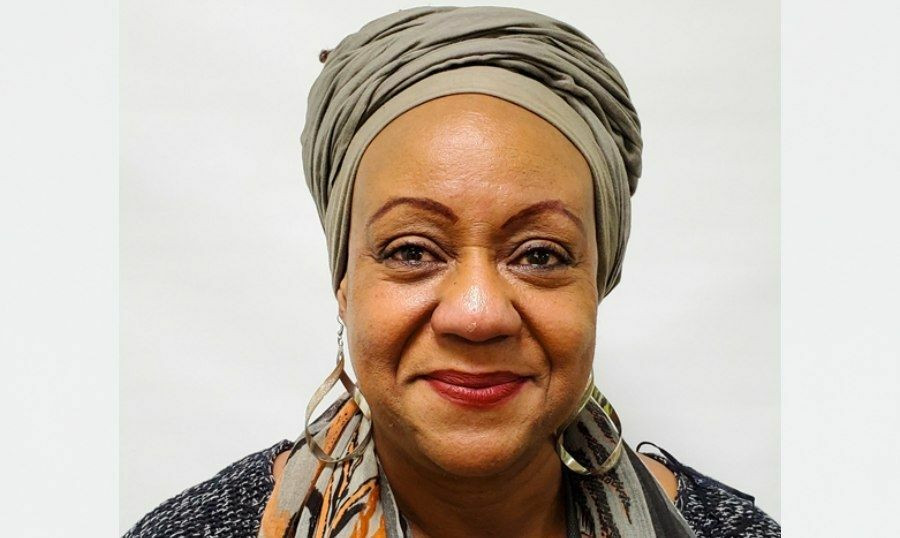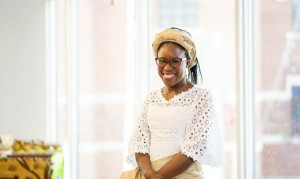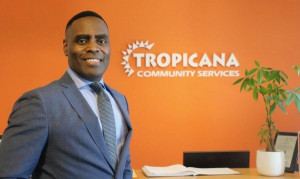Initially, Miller was arrested by Durham Regional Police and charged with assault with a weapon, theft under $5,000, and possession of marijuana. He could have faced a 10-year prison sentence. Had it not been for the intervention of Miller’s lawyer, Julian Falconer, the charges most likely would not have been dropped. An investigation also wouldn’t have been conducted as to why this incident was never reported to the Special Investigations Unit.
Even though Miller was only 19 at the time of the assault, a conviction and any length of sentence would have negatively impacted the rest of his life.
“That’s the way the system is set up. It makes it really difficult to get out of that hole,” said Kemi Jacobs, Executive Director of the Delta Family Resource Centre (DFRC)
With over 20 years of community involvement, Jacobs has worked in both the non-governmental and public sector, tackling issues such as immigration settlement, housing, and racism. Jacobs is also a former Chairperson of the National Anti-Racism Canada Council, and has started a personal initiative around the subject of self-love and self-hate in the African Canadian community.
Earlier this year, DFRC joined forces with Urban Rez Solutions, Somali Women and Children, For Youth Initiative, and Think 2wice, to develop a new initiative called An Ounce of Prevention (Oz). The program was developed in response to the over-representation of Black and racialized youth in the criminal justice system. It’s staffed by family counsellors, youth justices, as well as pre-release and reintegration workers who provide holistic healing for families of African and Caribbean descent.
Oz provides free services including family and individual counseling, support in court, while incarcerated and support after release. The program also connects families to various community resources.
ByBlacks spoke with Jacobs to learn more about the Oz program.
The name of the program comes from the expression “an ounce of prevention is worth a pound of cure.” Can you explain what that means in relation to youth and the justice system?
An ounce of prevention speaks to the fact that when young people encounter the justice system without understanding how it works and how to navigate it, quite often, they end up getting into situations where they are severely punished for things that other youth would not be punished for. Once you have someone at the initial stages of the process supporting you and helping guide you through the maze, you won't end up needing a pound of intervention.
What are the benefits of a holistic approach to dealing with youth and the justice system?
Young people who are involved with the justice system quite often don't know what they're getting involved in, because they don't know how to position themselves, what supports there are, and what their options are. People of colour, particularly Black youth, end up receiving longer sentences and bail conditions that are more strenuous. So basically, without guidance through the maze, young people will find themselves deep in a system that is very hard to find their way out.
One of the services Oz offers is free counselling to youth and their families. Why is including family in the counselling process important?
Whether it’s a mother, father, grandmother, whatever; family is critical to the process. We have another program called SNAP for young kids who are experiencing difficulty in school. We work with them and their families. Again, a holistic approach. You can’t just deal with the young person, when they often have to rely on their parents or relatives either when they first enter the system or when they're coming out. We believe that the whole community needs to come around. We need something almost like a wraparound process to support young people.
Understanding the young person's reality as a Black person, is a big part of it. And a lot of the feedback we get is that it’s such a relief to not have to explain everything, and not have to see raised eyebrows and get “what do you mean” questions. Right away there’s a comfort level that would take a long time to establish with a service provider who doesn’t reflect the community. We have people who have worked with these communities, they come from them and they understand. We look at the identity of the young person, understanding trauma and the issues that many of the communities in Toronto experience. Then we look at their unique situation, what are the factors which may have led to them being where they are. The next step is making connections because young people are part of the system and we all pay taxes and have services which we all are entitled to. A lot of families do not know about the services we have and they make a big impact.
What are the benefits of having a multi-faceted approach and having more than one entity coming up with and implementing solutions?
Basically, it’s more of a buffet as opposed to a menu with one thing because there is an array of services. And we cover a big geographical spread: Urban Rez is in the east, FYI is downtown, Somali Women and Support is in Etobicoke, and we are in Rexdale. So between us, we really can service more parts of the city in terms of having that breadth. For example, Urban Rez deals with public education and turning kids’ lives around. Their role is to do public education such as going into schools, going into communities.
The staff believes in young people. And a lot of young people, Black young people, have not had role models or people who believe in them. We know that they're facing issues and we know that they have options that are not healthy. We try to help them make some choices that will help them.
At the moment, youth’s interactions, particularly racialized youth’s interactions with the justice system are defined by conflict. How will Oz change that relationship for the better?
In another life, there was a program called OJEN, and again I was working with youth in communities. We brought representatives from the justice system into communities, and did mock trials so they could learn how the system works and interact with lawyers, judges, etc. That’s a program we can bring in again because we still have those connections. Our program is very young, we started in January. Even with COVID, we’ve managed to serve more than 156 people.
Recently, interim police chief, James Ramer, issued a public apology to Dafonte Miller on behalf of the Toronto Police Service for not reporting the details of his assault as soon as it happened. He said that “wrong decision” resulted in broken trust between the police and the community. What needs to be done to mend that relationship?
The Deputy Chief of Police was at the launch and said that they want to work with us. And we’re at an interesting position. We have to gain the trust of youth and we have to work with the systems, because the systems aren’t going anywhere. So we need to create some kind of dialogue letting people and their families know what their rights are. Knowing how they can access legal aid and support assists them in being aware of what the options are.
And I think a big piece is the identity of the young person. It's understanding the unique situation, it's connecting them to services, which we are entitled to. The fourth leg of that is connecting them to community. I strongly believe that the Black community needs to step up and really embrace our young people. One of my colleagues says, “We don't have a problem of youth, we have a problem of adults.” I'm a graduate of the Rites of Passage project. So again, that’s about looking at communities, supporting young people and supporting each other. Elders are very important, that’s something which we’ve lost. What we've learned is looking at how we can begin to build a strong support network where young people and their families don't feel isolated and don't feel they have to go through it alone.
One of our staff members accompanied one of the dads in the Black Fathers Group to court just to support. That father was totally blown away. And that worker doesn’t even work in that program. It’s just about having support and having your back.
The courts know our staff and they’re familiar with the work that we do. For example, when COVID happened out of the blue, we were contacted by lawyers. They wanted to do something for an organization in the Black community and within their neighborhood. It’s about more than the money, they’re building relationships. They’re lawyers in the courts but they also realize that young people and their families could benefit by getting more information. So right now, we're exploring the possibility of having maybe a monthly session where they can give not legal advice, but explain the system to the community. We hope we can do a similar thing with the police.
Since the death of George Floyd in May, more people have had conversations about systemic racism and defunding the police. How does Oz fit into that conversation?
I’m not sure where individual workers stand, and the DFRC wouldn’t take an official position. However, in terms of promoting the need for more informed care, we did. We signed a letter started by women in the community following the Regis incident, calling on the police to look at different ways of policing. For example, there was an inquest after the Andrew Luku incident and there were some really strong recommendations in terms of what should be done. We prepared an anti-Black racism statement, which we posted on our website, speaking about the need to look at different ways of addressing these deeply systemic barriers. And we have to be really clear when we talk about racism because there’s racism and there’s anti-Black racism.
Why is it important to specifically talk about anti-Black racism and differentiate it?
Because of the recent history of enslavement and persecution and systemic persecution of Black people, there is a particular type of impact that's caused by a particular type of discrimination and systemic injustice that is targeted at Black people.
There was a really brave panel around two months ago by a group of South Asian people about anti-Black racism. It was very brave and I was very humbled. They spoke about how People of Colour have benefited from anti-Black racism and how they have contributed to it.
Can you describe the relationship between law enforcement, the education system and child welfare when it comes to racism and negative outcomes for racialized people?
“It's a continuum. We speak of the school to prison pipeline in terms of racialized youth, especially males. I think we need to be clear.
Males are so targeted in the education system that they give up very easily. They’re told and they're taught what their aspirations should be and what their options should be. They’re really funneled out of the education system. So right away, there are few options for earning a decent living. When they go on the street, they find that they are earning a good living, it may not be a sustainable option, but that's where they go. That's why it's critical that these systems begin to unpack the inbuilt biases. Because until that's done, the pipeline of young (particularly Black) males to the prison system is going to continue.
During the press conference, someone said “arrests and convictions make the public feel safe but they do not reduce levels of crime or gun violence or address the root issues.” What are your thoughts on that?
I think to make people feel okay, the bad guy must be put away. But until you address the root causes, nothing much is going to change. Until you address the systemic injustice, which results in many Black youths being poorly educated or not having options for employment. All of those things, including maybe having been taken from their families. We do a lot of work with young people, particularly Black, in the care system.
Three years ago, you had the Office of the Advocate and they organized meetings for Black youth in care in Ontario. It was mind-blowing. You had 100 Black youth, many of them from small towns where they were the only Black person in their town. They may have siblings who were farmed out to other families. This was the first time they came together as a group.
In these same systems, a child wouldn’t be taken away from a white family. I know these systems are trying to change. Just the other day the Deputy Minister responded to an accusation of anti-Black racism from the Peel district, I believe, and she came out with a very strong statement, said it’s not to be tolerated and launched an investigation. We’re also supporting CAS (Children’s Aid Society) and looking into how we can get more Black families to be foster parents. So it’s looking at systemic changes.
Community involvement has been a part of your life for over 20 years. On a personal level, what does the Oz program mean to you?
I grew up in the Caribbean and was used to having role models who looked like me. It breaks my heart to see Black kids in this country, not knowing the potential of Black people. They don't believe in us and in themselves. I’m a Black woman first and foremost and for me, Oz is about identity and affirming your African identity. When you know who you are, it’s very hard to sway you. You have a focus and a game plan.
Quite often, those of us who find a way out forget to reach back and bring others forward.

 By
By 





